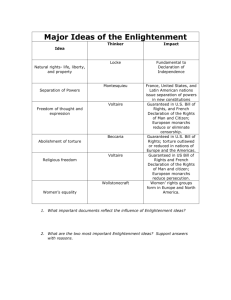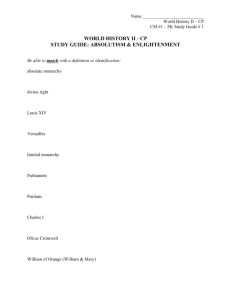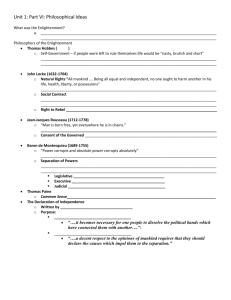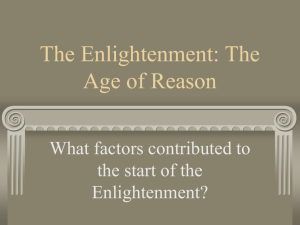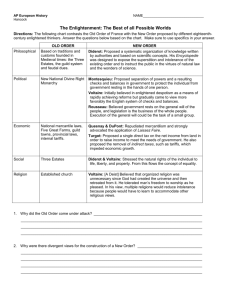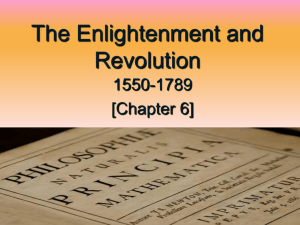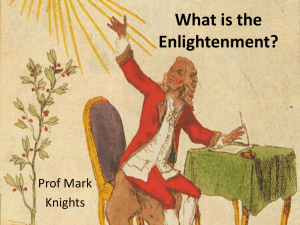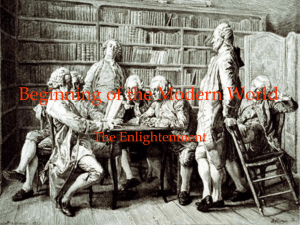Enlightenment Ideas SPread
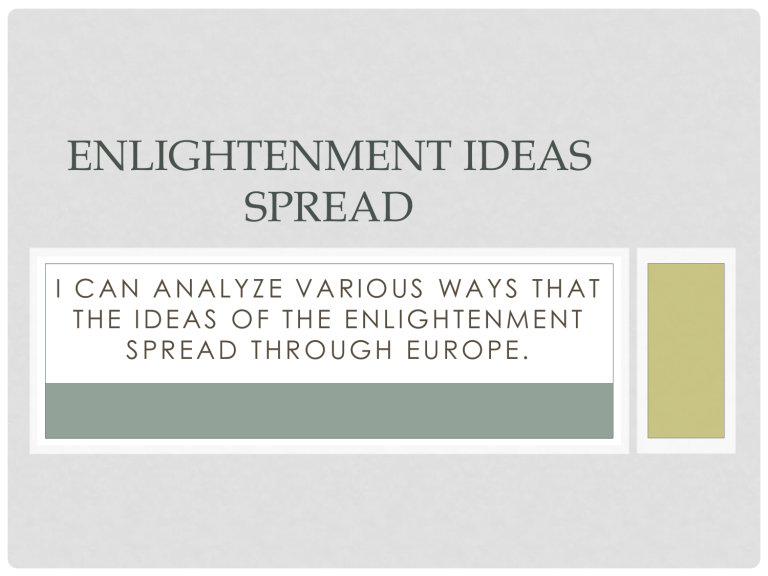
ENLIGHTENMENT IDEAS
SPREAD
I C A N A N A L Y Z E V A R IO US WA Y S TH A T
TH E ID E A S O F TH E E N L IG H TE N M E N T
S P R E A D TH R O UG H E UR O P E .
NAME THAT PHILOSOPHE!
1.
People are born free, have natural rights, have ability to overthrow government
2.
Believed in speedy trial, no torture, no capital punishment (death penalty)
3.
Believed women should enter medicine and politics
4.
People are bad, absolute monarchy is needed to keep people in line
5.
Argued for a separation of powers
6.
Believed in tolerance, reason, freedom of religion and freedom of speech
7.
Individual freedom, direct democracy needed
SALONS
• Salons: Philosophers, writers, artists and scientists met socially to discuss ideas
DIDEROT’S ENCYCLOPEDIA
• Diderot published an
“Encyclopedia”
• Printed on a Printing
Press
• Collecting all knowledge gives humans "the power to change men's common way of thinking”
LETTERS AND WORKS OF FICTION
• Governments and churches felt they needed to protect and defend order.
• Burned books and imprisoned writers to protect the people from the attacks of the Enlightenment
• Philosophes hid and disguised their ideas in works of
Fiction.
• Montesquieu wrote Persian Letters. Tale about two Persian travelers who mocked French society.
• Voltaire wrote Candide. Tale of a hero who travels the world searching for the “best of all worlds”. Uses the tale to expose the corruption and hypocrisy of European society.
ENLIGHTENMENT AND MONARCHY
• Some Enlightenment philosophers didn’t want monarchies
• Others wanted rulers to lead fairly
• Monarchs who embraced ideas of the
Enlightenment were called enlightened despots
• They supported Enlightenment ideas – in theory
• Still wanted to maintain absolute power
FREDERICK THE GREAT
• King of Prussia from 1740 to 1786
• Granted religious freedoms
• Reduced censorship, improved education
• Eliminated torture
• Did not eliminate serfdom, even though he thought it was wrong
JOSEPH II
• Royal reformer from Austria
(1780-1790)
• Reformed laws and granted freedom of press
• Supported freedom of religion
• Abolished serfdom
• His reforms were reversed after he died
CATHERINE THE GREAT
• Ruled Russia from 1762-1796
• Read the Enlightenment thinkers, exchanged letters with Voltaire
• Called a commission to reform Russian laws
• She recommended allowing religious freedom, and eliminating torture & the death penalty
• The commission disagreed
• She put some reforms in place but didn’t accomplish her main goals because of the nobles
